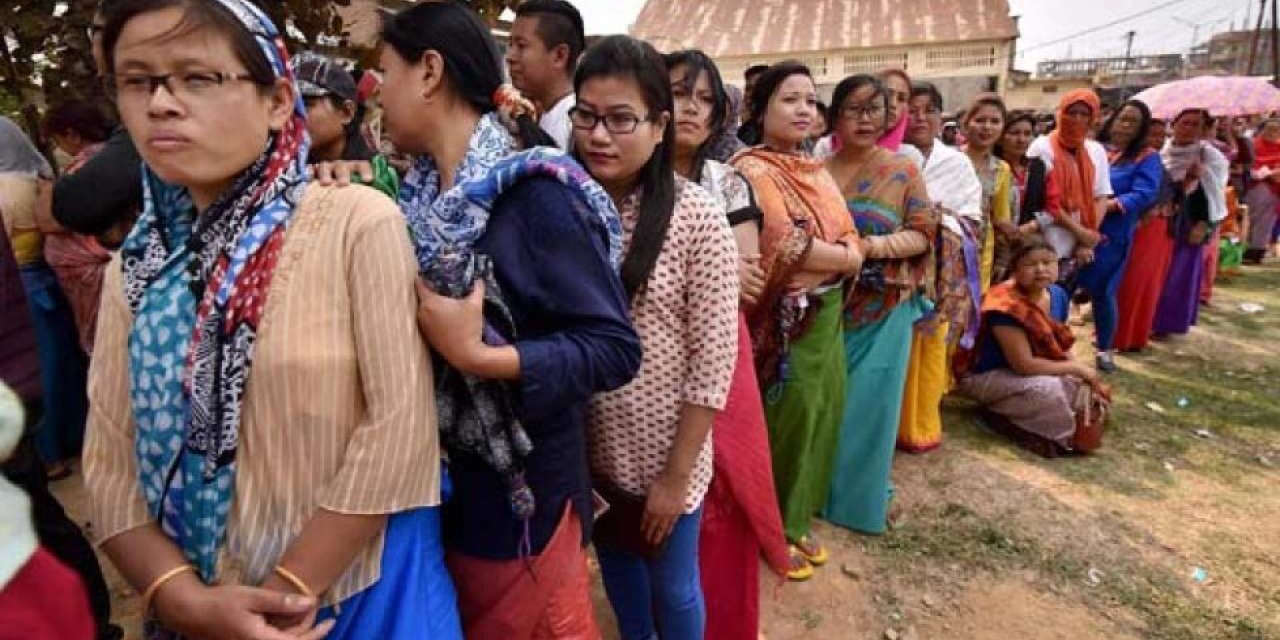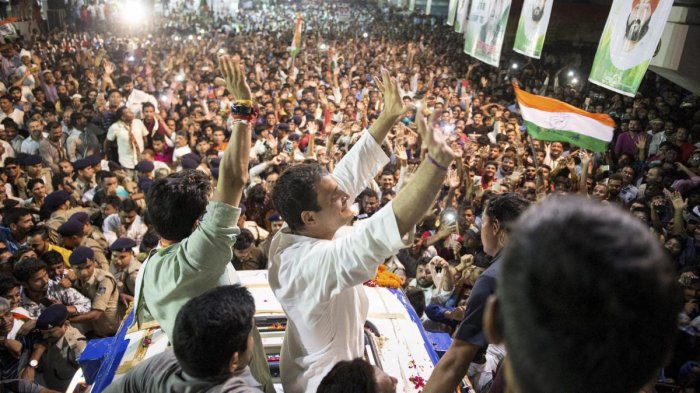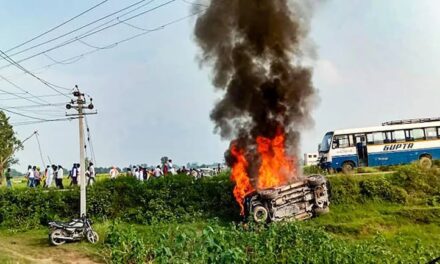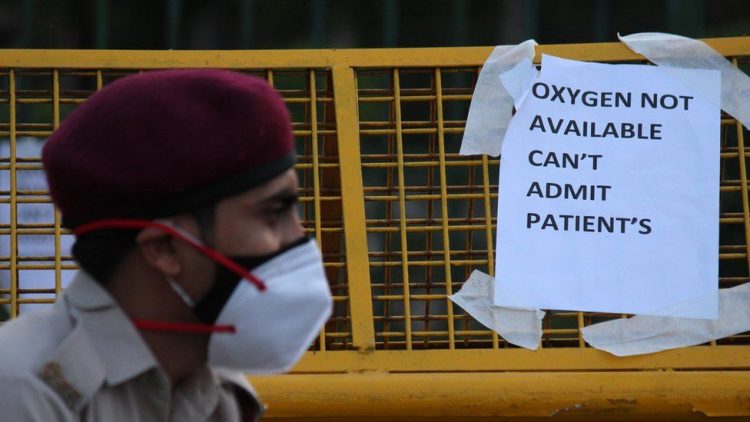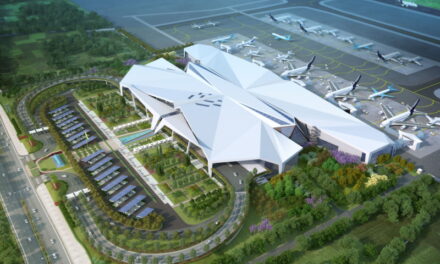Manipur, where two phases of polling are due on 28th February and 5th March, as anticipated has received scant attention from the media obsessed with Uttar Pradesh polls.
But Manipur is an important border state, with a troubled past and an intriguing present.
Congress, the dominant party till the counting day in 2017, had emerged as the single largest party with 28 seats.
But BJP, with 21 seats, was invited by the then Governor Najma Heptulla to prove its majority. It successfully manufactured a majority and formed the government.
This time around, Manipur elections can be broken down into two separate battlefields.
First, the 40 general category seats in the Imphal Valley and areas bordering Assam. These seats are dominated by Meiteis, the dominant community of the state. It is a two cornered fight for these seats between Congress and the BJP.
Second, the 20 reserved seats in the hills, dominated by Nagas and Kukis. It’s a triangular fight for the reserved seats, between Congress, National People’s Party (NPP) led by Conrad Sangma and Naga People’s Front or NPF, led by Neiphiu Rio till 2018. It’s currently led by TR Zeiliang.
BJP, NPP and NPF, constituents of the ruling NEDA, are contesting these elections separately.
Congress on the other hand is fighting in alliance with the Left and a few minor parties.
The campaign did see violence, which went mostly unreported in the national media.
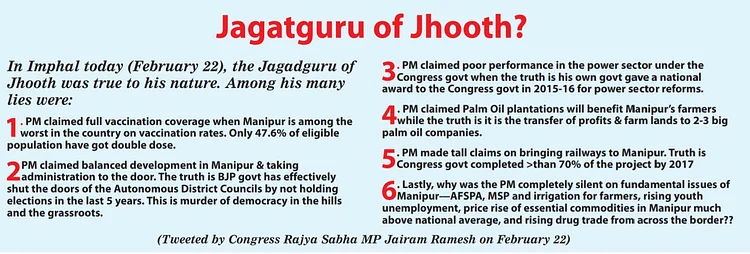
There have been allegations of banned outfits lending their muscle to BJP’s campaign. These allegations were levelled by NPP. But significantly they stopped short of filing a written complaint to the EC.
Both BJP and Congress released their manifestos. BJP has pledged to extend national schemes like free LPG, laptops for students, cash transfers, local governance and zero tolerance for drugs.
Congress on the other hand has promised to generate 50, 000 jobs annually for 5 years, one-third reservation for women in all government jobs and work toward repeal of Armed Forces Special Powers Act (AFSPA).
AFSPA, the draconian law that allows what is perceived in the state to be unbridled and much abused powers to the armed forces, has been the proverbial Albatross around all political parties in the region.
AFSPA was expected to be an election issue. More so after the botched-up operation in Nagaland’s Mon district in early December. The incident in Oting and its aftermath saw 14 deaths.
Nagaland came to a standstill. The entire region demanded repeal of the draconian law. Conrad Sangma, the Chief Minister of Meghalaya, and leader of NPP was the first one to raise the demand, followed by other leaders cutting across political divides.
The Act has since then been extended for six months in Nagaland and for another year in Manipur. That was a signal that BJP would not raise AFSPA as a poll issue.
Manipur chief minister N. Biren Singh has said that while he and people of the poll-bound state wanted withdrawal of AFSPA, national security was still the higher priority.
The unstable situation in neighbouring Myanmar was has also been offered as an excuse for extending AFSPA in Manipur.
Strangely enough, neighbouring Mizoram shares a far longer and far more porous border with Myanmar but it hasn’t felt the need to reimpose AFSPA since 1986, when it was fully withdrawn from the state.
Also Political parties in Manipur seem to have fielded several candidates with criminal backgrounds for the Assembly polls, scheduled to be held in two phases on February 28 and March 3, according to an analysis by the Association for Democratic Reforms (ADR).
According to the ADR data, at least 21 per cent of the 173 candidates in fray for the first phase and around 17 per cent of the 92 candidates in fray for the second phase have declared criminal cases. The BJP has fielded the most number of candidates with criminal cases followed by the JD(U).
The report states that in the first phase, 11 out of 38 candidates from the BJP, seven out of 28 candidates from the JD(U), eight out of 35 candidates from the INC and three out of 27 candidates from the NPP have declared criminal cases against them.
Meanwhile, among the candidates in the second phase, 40 per cent of the candidates fielded by JD(U), 22 per cent of the candidates of the Congress, 18 per cent from the NPP and nine per cent from the BJP have declared criminal cases against them.

